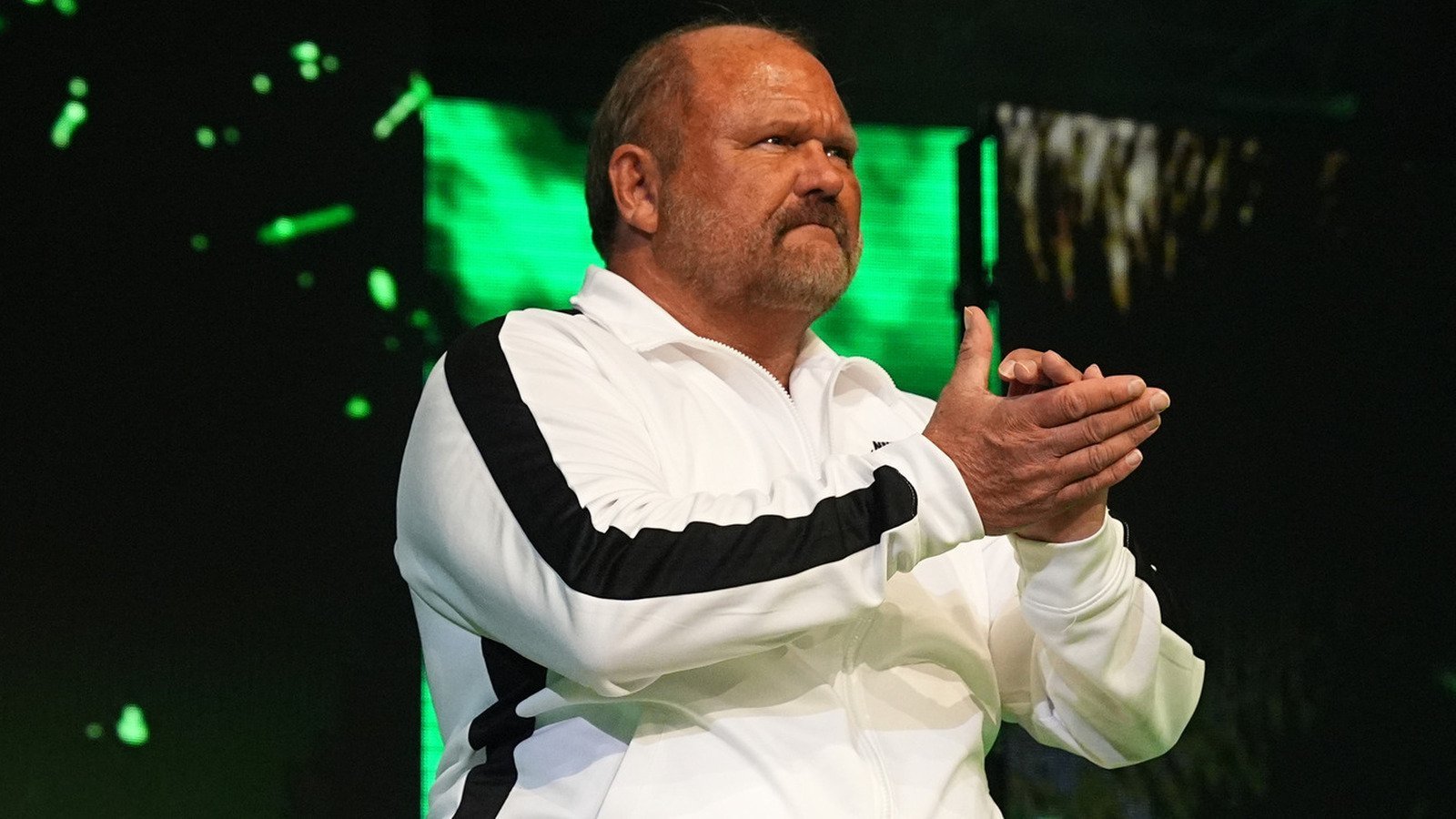
On a recent edition of his “The ARN Show” podcast, WWE Hall of Famer Arn Anderson reflected on his time working on the WCW booking committee in the 1990s, and more.
You can check out some highlights from the podcast below:
On Hulk Hogan working with his old rivals from WWE early in his WCW run: “The only way to benefit a guy working with Hogan is, he needs to have heat. I can’t remember and put my finger on anybody who would have had heat at that particular time. Is there anybody you can think of with the company that was hot? Say, a Rick Rude, that would have been hot at the time. You could have put him in an angle done properly with Hogan, I think. It’s got to be — I don’t know, it’s just booking matches. You can book matches this guy against this guy, this guy against this guy. And you can put it in a town, it doesn’t mean it’s gonna draw. But you can have two or three matches that the audience cares about. And sometimes that’s enough to draw you a house. I thought it was just all rehash.”
On joining the WCW booking committee in 1994: “Well, Ric [Flair] brought me in. He brought me in to be part of the booking committee. And then [laughs] he loses his match [against Hulk Hogan with retirement stipulation], and he takes off. So, ‘Okay Arn, I want you to come in. You’re a smart guy. I want you to lend your expertise. You can help me, you can help Kevin [Sullivan], you know, you guys are a great idea guys.’ And then he left. And that left me and Kevin and Jimmy Hart sitting in there, we were the booking committee. So I was learning on the job.
“But basically what I offered, and the reason that he brought me in, I got a way with finishes, making stuff make sense, things of that nature, I could be, maybe consider myself the voice of reason. In a crazy business where we do a lot of haywire stuff, somebody had to be there to reel you back in and go, “Hey, wait a minute, that might be a little too far. How about this?”
On not enjoying the process: “I didn’t necessarily enjoy it, because it just meant more hours at the office. You gotta remember now, I’m still wrestling. And I’m still wrestling in a spot, the last three matches of the night every night. So if I went to a house show, I would be responsible for going around, laying out all the finishes for the entire show. And putting my match together as well, which I could have been on last night or second, the last or third to the last, but I still had to be available for questions, people want to make changes, all those things that go on during the show. And I’ve still got a main event match or at least the top match to wrestle.”
In a recent episode of his podcast, “The ARN Show,” WWE Hall of Famer Arn Anderson discussed his time working on the WCW booking committee in the 1990s. Anderson shared his thoughts on Hulk Hogan working with his old rivals from WWE, his experience joining the WCW booking committee, and the challenges he faced in the role.
When it came to Hogan working with his old rivals from WWE, Anderson emphasized the importance of creating heat for Hogan’s opponents. He mentioned that he couldn’t recall anyone at that time who had enough heat to make a compelling storyline with Hogan. Anderson suggested that someone like Rick Rude, if properly booked, could have been a suitable opponent for Hogan. He also highlighted the significance of booking matches that the audience cares about, as it can draw a crowd and generate interest.
Anderson then discussed how he joined the WCW booking committee in 1994. Ric Flair brought him in to be part of the committee, but after losing his retirement match against Hogan, Flair left. This left Anderson, Kevin Sullivan, and Jimmy Hart as the remaining members of the booking committee. Anderson admitted that he was learning on the job but believed that his expertise in finishes and making sense of storylines made him a valuable addition. He saw himself as the voice of reason in a business known for its unpredictable nature.
Despite the importance of his role, Anderson admitted that he didn’t necessarily enjoy being part of the booking committee. It meant spending more hours at the office, which was challenging considering he was still an active wrestler. As one of the top performers, Anderson had to lay out finishes for the entire show and put together his own match while being available for questions and potential changes during the event.
Overall, Anderson’s reflections shed light on his time working on the WCW booking committee and the challenges he faced juggling both his wrestling career and administrative responsibilities. His insights provide a glimpse into the behind-the-scenes workings of WCW during the 1990s and the complexities involved in creating compelling storylines and matches.
